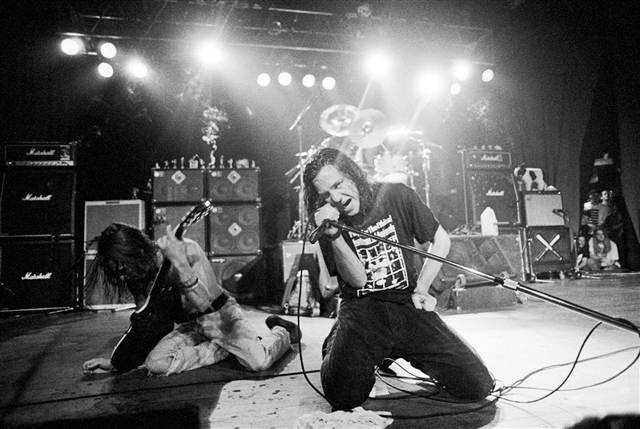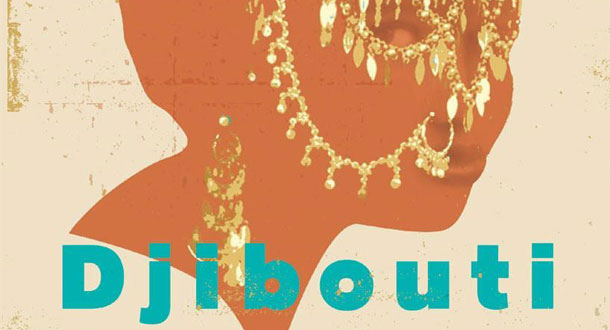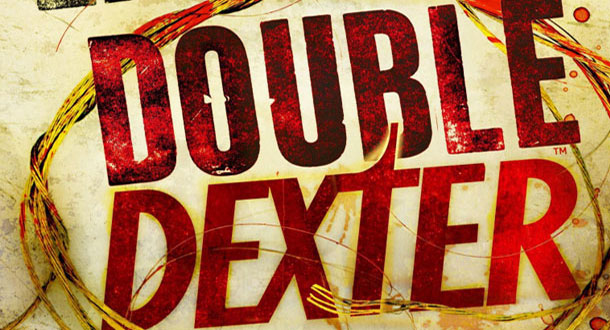Howls From the Wreckage trades in all manner of disaster. One might mainly associate this type of story with movies, from The Towering Inferno to Godzilla and other kaiju films, to Independence Day and even Titanic. This anthology gives such tales the literary treatment, with nearly every story featured having more of a supernatural or science fiction bent (or both), and all stories dealing in the absolutely horrific. As Nick Cutter, author of The Troop and The Deep, states in his foreword:
Horror so often dwells upon collapse, doesn’t it? Of the body, or borders between sanity and madness or our world and other more hostile planes of existence. The collapse of the moral threshold separating right from wrong (a line many authors and their characters hurdle gleefully), and the collapse of bonds of family or friendships or parenthood that bind people.
The latest in a series of anthologies from the Horror-Obsessed Writing and Literature Society — or HOWLS — Wreckage offers readers twenty new works, many of which deal with parenthood, as Cutter observes, or more broadly, with family dynamics in different and often terrifying ways. For instance, “Don’t Play in the Closet” by David Worn — the collection’s opening story — blends Stephen King’s recently adapted-for-the-screen “The Boogeyman” with aspects of Tom Perrotta’s The Leftovers to create a wholly original narrative about the mass disappearance of young children and the lengths parents will go to recover their missing offspring.
Worn gives readers a twisted and gut-wrenching ending with this one, and the story overall sets the bar for quality high. Fortunately, the other entries meet the challenge. Of particular note is “Crickets” by Solomon Forse, the founder of the HOWL Society and a continued creative force therein. His tale also involves children, though instead of a mass disappearance, the horror here stems from a hive-like obsession with a very foreign toy similar to a Tamagotchi.
“Crickets” also examines the difficulties of parent-child relations, a theme carried over in “(>executeRelease_)” by P.L. McMillan, a wonderfully epic sci-fi tale that’s really about the guilt a parent feels toward the behavior of their children, especially when said children are giant haywire mechanical spiders in a capitalist state gone completely awry. The theme continues in Caleb Stephens’s “Son of Yokozuro,” a kaiju story that is effectively Godzilla meets a Shakespearean tragedy, equal parts fun and heartbreaking. “Fleshies” by Thea Maeve juxtaposes a toxic family with a functional one. The main character, a trans girl named Raven, has loving, accepting parents, while her girlfriend Serena’s folks are bigoted Bible-thumpers who continually and purposely misgender Raven, whom they deem a “Satanist” and a danger to their community. But when a genuine and biblical danger actually arrives in their small town, rather than see the error of their ways, the toxic parents double down on their hate, with truly stomach-churning results.
Several works in the collection involve familial tragedies that yield personal struggles, as with Bridget D. Brave’s “Unzipped,” in which Mia, a teenage girl mourning the death of her sister, turns into a rebel and troublemaker. She joins a recovery program to turn her life around, but her “final exam” — a spelunking trip through a cavern — turns into a claustrophobic’s nightmare when Mia becomes stuck upside down in a narrow tunnel. Worse still, there’s a country-fried would-be helper just out of Mia’s sight who may or may not have ill-intentions toward the imperiled teen. Jennifer L. Collins’ “Against the Flats” furthers this theme with the story of man who, in the wake of his brother’s death, must put himself in an impossible and absolutely dreadful situation to save the lives of his friends.
 Last but certainly not least are the stories that focus solely on inner struggle. “Casualties of a Predictable Apocalypse” by Joseph Andre Thomas grapples with the pressure we put on ourselves, on our minds, to feel something in the face of unimaginable cataclysm and loss, while “Heavy Rain” by T.J. Price turns a personal tragedy into widespread horror with grotesque poignancy. “A Thing of Habit” by Cassandra Khaw follows an evil, narcissistic entity, and it is thoroughly unnerving up until its satisfying twist ending. Perhaps the most upsetting story in the collection, “Forever Home” by Chelsea Pumpkins centers on a person searching for their cat in the wake of a tsunami, demonstrating how “pets” can not only serve as our best friends, but as a person’s entire world.
Last but certainly not least are the stories that focus solely on inner struggle. “Casualties of a Predictable Apocalypse” by Joseph Andre Thomas grapples with the pressure we put on ourselves, on our minds, to feel something in the face of unimaginable cataclysm and loss, while “Heavy Rain” by T.J. Price turns a personal tragedy into widespread horror with grotesque poignancy. “A Thing of Habit” by Cassandra Khaw follows an evil, narcissistic entity, and it is thoroughly unnerving up until its satisfying twist ending. Perhaps the most upsetting story in the collection, “Forever Home” by Chelsea Pumpkins centers on a person searching for their cat in the wake of a tsunami, demonstrating how “pets” can not only serve as our best friends, but as a person’s entire world.
Even though this last category features no major explorations into family, they do not stand out as outsiders within the broader collection. In fact, despite the uniqueness of each voice featured in the anthology and the wide breadth of disasters covered in each tale, Wreckage reads more like a novel, with its seemingly disparate pieces actually serving to tell a broader narrative, much like Max Brooks’s World War Z before it. And the element connecting each story together, as editor Christopher O’Halloran notes in his afterword, is hope. “These stories illustrate something crucial to fiction and crucial to life,” he writes. “That people need to care.”
Indeed, amid the myriad means of destruction and the wealth of desperation felt by the characters populating Wreckage, there is an overarching sense of optimism and a desire to do good, or at least to do better, coursing through each story. Even when a particular ending is darker, when a character doesn’t achieve their goals, one cannot consider these stories bleak or pessimistic. This coupled with the anthology's diverse group of writers makes Wreckage a pertinent and potent read for the age we're currently living through.
Get Howls from the Wreckage at Bookshop or Amazon

About the author
Christopher Shultz writes plays and fiction. His works have appeared at The Inkwell Theatre's Playwrights' Night, and in Pseudopod, Unnerving Magazine, Apex Magazine, freeze frame flash fiction and Grievous Angel, among other places. He has also contributed columns on books and film at LitReactor, The Cinematropolis, and Tor.com. Christopher currently lives in Oklahoma City. More info at christophershultz.com






